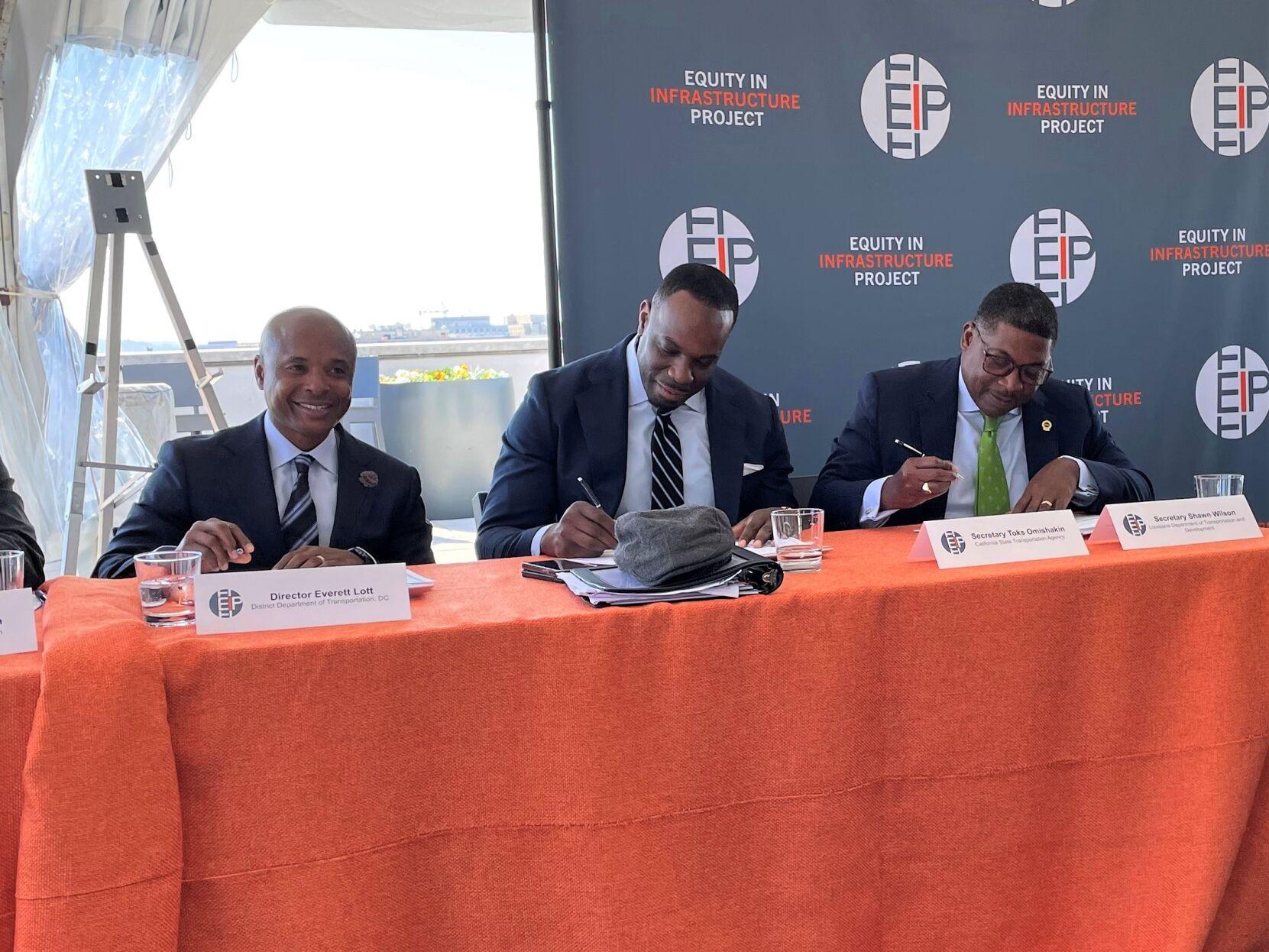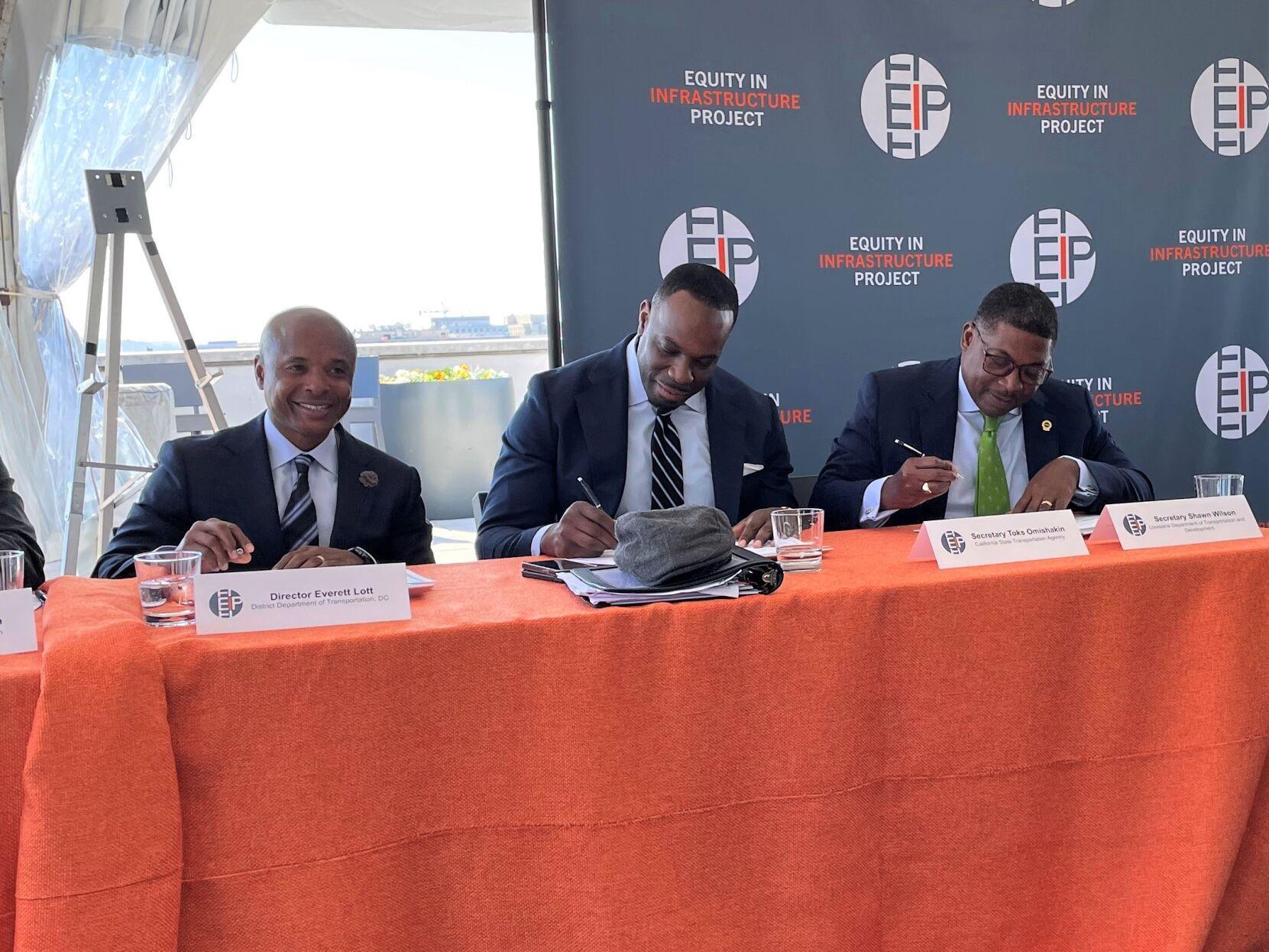Louisiana on Tuesday became one of the first states to sign a protocol aimed at hiring more minority firms to work on public transportation projects.
In a rooftop ceremony overlooking the U.S. Capitol, Shawn Wilson, secretary of the Louisiana Department of Transportation and Development, signed the Equity in Infrastructure Project, called the EIP pledge, along with the heads of transportation departments from five other states. Within in the next few years all 50 states are expected to sign the protocols.

EIP works to secure commitments from public agencies to increase the number, size and scope of contracts going to minority businesses by facilitating access and reducing barriers to compete for business. The idea is to improve public contracting practices, remove bureaucratic roadblocks, and standardize procedures from state to state to help grow the businesses of minority contractors.
Wilson is also president of American Association of State Highway and Transportation Officials, the century-old coalition of state transportation agencies.
Louisiana has a lot of subcontractors, hired to do specific jobs, and relatively few prime contractors, who are hired by the state to manage big projects like adding a lane in each direction to Interstate 10. The prime contractors hire subcontractors to handle specific jobs.
But small businesses, ones that hire and operate locally, need to grow in order to oversee more and larger projects, Wilson said.
Standardizing certification from state to state and allowing reciprocity, for instance, would allow Louisiana subcontractors to work in Mississippi, Arkansas, Texas and other states, thereby creating more work for the Louisiana businesses, Wilson said.
All 50 states are seeing more work. The Infrastructure Investment and Jobs Act, which became law in November 2021, appropriates $1.2 trillion to maintain and modernize roads, bridges, rail, ports, airports, broadband, drinking water and other infrastructure systems.
Wilson pointed out that when he became secretary in 2016, Louisiana had $1.1 billion in projects to build and maintain roads and bridges. Federal law requires a percentage of those contracts to go to minority-owned businesses. The goal was that 8% of the work be done by minority contractors in 2016.
This year, Louisiana has $3.4 billion in contracts with a goal 16.7% of the work done by businesses owned by women, veterans or minorities, Wilson said. About 40% of Louisiana’s population is minority.
